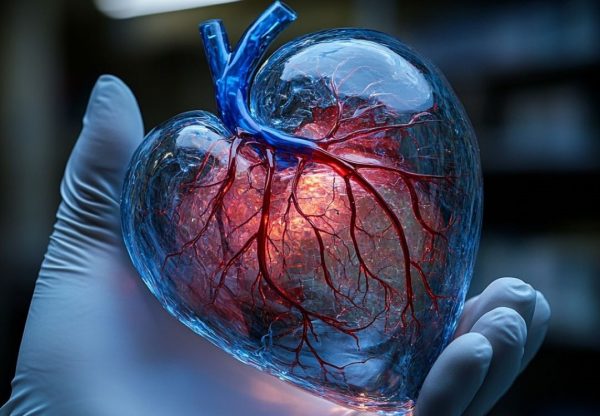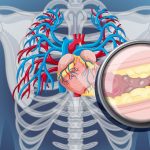When it comes to cholesterol, mainstream medicine has it all wrong. LDL cholesterol isn’t the “bad guy”. In fact, it’s not even cholesterol. Neither is HDL.
People don’t get that.
You ask them what their cholesterol is and they say “Oh, my HDL is this or my LDL is that.” Those things are not cholesterol. They are proteins – either low-density lipoproteins to carry cholesterol to the arteries or high-density lipoproteins that carry cholesterol away from the arteries and back to the liver to be recycled.
And let me be clear on one thing. Your body makes 85% or so of the cholesterol from your liver. Because your body needs it!
It’s an antioxidant. It’s in your cell membranes. It protects you. It’s absolutely necessary to your existence. Your body uses it to produce sex hormones, maintain neurological function, make bile acids, produce cell membranes and support and preserve brain function.
If your LDL is too low, it has a horrible effect on your brain. It’s neurons and synapses can’t work right. This brings your brain activity – memory, learning, recall – to a screeching halt. That explains why statin drugs are associated with memory loss, forgetfulness, amnesia, memory impairment and confusion.
More Accurate than LDL Cholesterol in Predicting Heart Risk
A typical cholesterol screening zeroes in on only two number; low-density lipoproteins (LDL) and high-density lipoproteins (HDL). These are supposed to assess your heart attack risk.
But there are much more accurate markers, and they aren’t being tested for.
One of them is apolipoprotein B (apoB). This is a protein particle that helps carry fat and cholesterol through your bloodstream.
The thing about apoB is that it is better than other cholesterol markers when it comes to predicting the risk of a heart attack. That’s because this protein is highly atherogenic and representative of the number of particles that can enter and attach to the arterial walls.
This means two people can have exactly same cholesterol levels – even normal levels – but if one has a higher concentration of apoB particles, they are going to be at a much higher risk of blockages, heart attack and stroke.
Most doctors don’t automatically test for apoB levels the way they do for cholesterol. So you need to ask for it.
There is another protein that can build up in the walls of your blood vessels. It’s called lipoprotein (a) or Lp(a).
In a 2024 study published by the Journal of the American College of Cardiology, Lp(a) independently predicted the chance for heart attack, stroke, and death from coronary heart disease. Another study from the same journal indicates that Lp(a) is over 6 times more atherogenic than LDL.
Unfortunately, Lp(a) testing is rarely performed unless you ask for it.
Routine cholesterol tests also don’t check for oxidized LDL (oxLDL). And that’s another thing you need to be concerned about.
When LDL particles become oxidized it makes them extremely inflammatory and more likely to become implanted in blood vessels. Over time, it hardens.
This works against you by blocking arteries and restricting blood flow to your heart, brain and other organs. An oxLDL test can give you a handle on how damaged your LDL particles are. It’s a simple blood test that measures the amount of circulating oxLDL.
Here Is What’s in Your Control
I’ll say one thing here… if you don’t know what’s wrong with you, you can’t treat it. Sure, your cholesterol might look great. But that doesn’t mean much if you have any of these other things going on.
So please consider having these tests done on your next check-up.
In the meantime, you know the drill…
Eat well. Enjoy plenty of fresh, organic plant-based foods. Veggies, fruits, nuts and beans. Limit meat intake to only about 15% of your diet; and avoid inflammatory processed, fried and packaged foods as much as possible.
Sleep well. Keep your room cool and well ventilated. Shut down the lights and electronics at the same time every night and keep a regular schedule.
Move often. Take a walk. Go swimming. Sign up for yoga or Tai Chi. Even simple, every day activities like gardening, woodworking and cleaning the house contribute to your activity levels.
SOURCES:
Sayed A, Peterson ED, Virani SS, Sniderman AD, Navar AM. Individual Variation in the Distribution of Apolipoprotein B Levels Across the Spectrum of LDL-C or Non-HDL-C Levels. JAMA Cardiol. 2024 Aug 1;9(8):741-747.
Proitsi P. The key role of apolipoprotein B in major vascular diseases and longevity. Lancet Healthy Longev. 2021 Jun;2(6):e302-e303.
Richardson TG, Wang Q, Sanderson E, Mahajan A, McCarthy MI, Frayling TM, Ala-Korpela M, Sniderman A, Smith GD, Holmes MV. Effects of apolipoprotein B on lifespan and risks of major diseases including type 2 diabetes: a mendelian randomisation analysis using outcomes in first-degree relatives. Lancet Healthy Longev. 2021 Jun;2(6):e317-e326.
Wong ND, Fan W, Hu X, Ballantyne C, Hoodgeveen RC, Tsai MY, Browne A, Budoff MJ. Lipoprotein(a) and Long-Term Cardiovascular Risk in a Multi-Ethnic Pooled Prospective Cohort. J Am Coll Cardiol. 2024 Apr 23;83(16):1511-1525.
Björnson E, Adiels M, Taskinen MR, Burgess S, Chapman MJ, Packard CJ, Borén J. Lipoprotein(a) Is Markedly More Atherogenic Than LDL: An Apolipoprotein B-Based Genetic Analysis. J Am Coll Cardiol. 2024 Jan 23;83(3):385-395.
Poznyak AV, Nikiforov NG, Markin AM, Kashirskikh DA, Myasoedova VA, Gerasimova EV, Orekhov AN. Overview of OxLDL and Its Impact on Cardiovascular Health: Focus on Atherosclerosis. Front Pharmacol. 2021 Jan 11;11:613780.



